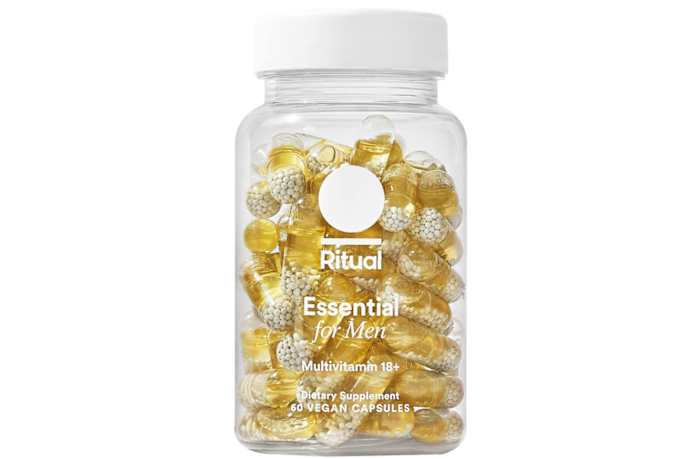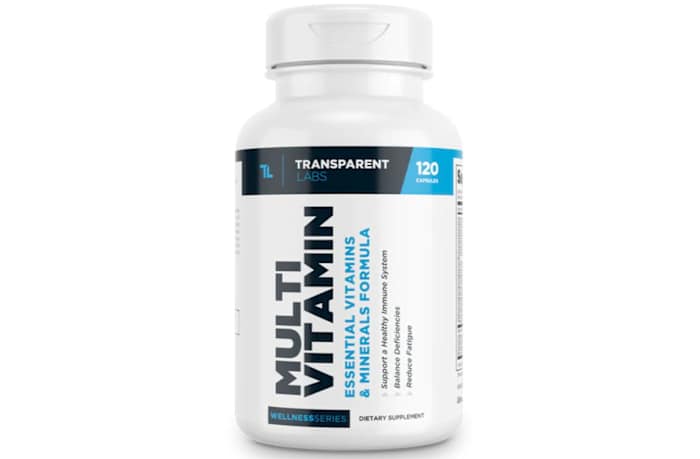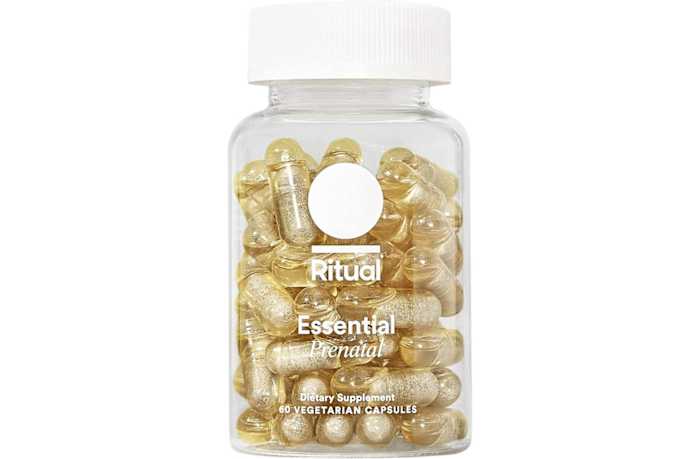The products featured in this article have been independently reviewed. When you buy something through the retail links on this page, we may earn commission at no cost to you, the reader. Sports Illustrated editorial staff are not involved in the creation of this content. Learn more here.
A nutritious and well balanced diet is the foundation for optimal health. It's the best way to consume the essential vitamins and minerals our bodies need to function correctly. While the majority of your micronutrient intake should come from whole food sources, vitamin and multivitamin supplements can be a great way to help fill in any potential dietary gaps. However, to gain the maximum health benefits from these supplements, it’s essential to take them at the right time. The timing of nutrient intake can affect its absorption and effectiveness. In this article, we'll discuss the best time to take vitamins to ensure that you'll get the most out of your health-promoting supplements.
Best Times of the Day to Take Vitamins
Vitamins are divided into two different categories, including fat-soluble and water-soluble vitamins. The fat-soluble vitamins include vitamin A, D, E and K, and “fat soluble” means that they are best absorbed when consumed with a meal that contains some fat. Therefore, it's recommended to take these dietary supplements during meals.
On the other hand, the water-soluble vitamins, which include B vitamins, B complex vitamins and vitamin C dissolve readily in water, and are not stored in the body. These types of vitamins are generally absorbed well on an empty stomach; however, for optimal absorption they should also be taken with a meal. This is because food helps slow down the digestion of these supplements, which allows them to spend more time in the digestive tract. Consequently, the more time they are able to spend in the intestines, the more likely they are to be absorbed by the body.
When is the best time to take vitamin D?
The best time of day to take a vitamin D supplement is in the morning with a meal. This is because vitamin D is a fat-soluble vitamin, which means that it's absorbed better when taken with a meal that contains some fat. It’s also advised to take this product in the morning because there is some evidence that taking a vitamin D supplement in the evening may impact the quality of your sleep.
When is the best time to take vitamin B12?
Water-soluble vitamins like B12 should be taken in the morning with a glass of water or food. Vitamin B12 is also known to improve cognitive function and reduce fatigue, which is great for the morning but might impact your ability to fall asleep if consumed in the evening before bed.
When is the best time to take vitamin C?
There really is no best time of day to take a vitamin C supplement because it's another water-soluble vitamin, meaning it doesn't need to be consumed with food. In general, vitamin C can be taken throughout the day, especially when feeling stressed or ill. This is because vitamin C plays an important role in immune function and may help to reduce the severity and duration of colds and other illnesses.
When is the best time to take vitamin E?
Similar to vitamin D, the best time to take a vitamin E supplement is in the morning with a meal. This is because vitamin E is another fat-soluble vitamin, so it should be consumed with a meal containing some fat to maximize the absorbability.
When is the best time to take prenatal vitamins?
If you are planning to become pregnant, it is usually a good idea to start taking prenatal vitamins before you even conceive to help ensure that your body has the nutrients it needs to support a healthy pregnancy. Many prenatals are also taken early in the day with a meal to help prevent any nausea or upset stomach that can sometimes occur with these supplements. Once you find your routine, stick with it and continue to use the prenatals throughout the pregnancy and as advised by your primary healthcare provider.
When is the best time to take multivitamins?
When it comes to multivitamins, the main priority is to remain consistent and consume them around the same time each day. This can help to ensure that you don’t miss a dose and that your blood nutrient levels remain stable. In most cases, I would advise taking a multivitamin supplement in the morning with breakfast to receive the best benefits for your day ahead.
Our Favorite Vitamins
When compiling this list, we looked at a number of important factors including the quality of the ingredients, the vitamin dosage levels, both positive and negative customer reviews and price points. Our goal with these recommendations is to ensure you are getting a high value vitamin supplement to help you achieve your health and wellness goals.
Ritual Essential Multivitamin
Get 25% off your first month of Ritual! Code: SI25
Key features:
- Ritual has a wide range of multivitamin supplements for both men and women at different times of their lives (teens, 18+, 50+, prenatal and postnatal). The main difference is that the men’s formula contains vitamin A, while the women’s includes folate.
- These supplements contain nine to ten nutrients and include both vitamins and minerals placed inside a stomach acid-resistant vegan capsule.
- Ritual makes only vegan supplements.
- They are also USP Verified (a.k.a. third-party tested for purity)
- Ritual is a subscription vitamin priced at $33 for a 30-day supply.
Check out our Ritual vitamins review for an in-depth look at these personalized vitamins.
Transparent Labs Multivitamin
Key features:
- Transparent Labs Multivitamin has over 20 key nutrients with most accounting for your total recommended daily intake.
- Transparent Labs products contain no artificial sweeteners, colors, flavors or preservatives.
- This supplement comes in capsule form, and a serving size is four capsules per day.
- This multivitamin is priced at $29.99 for a 30-day supply.
Check out our Transparent Labs Multivitamin review for an in-depth look at this supplement.
Care/of Vitamin C
Key features:
- These Care/of vitamin C capsules have 250 milligrams of vitamin C (as organic acerola cherry extract) per serving
- Contains phytonutrients to aid in the absorption of of vitamin C for better results
- Gluten-free, soy-free, dairy-free and vegan friendly
- Third-party tested and Certified C.L.E.A.N.
- This supplement is priced at $7 for a 30-day supply
Related Post: The Best Multivitamins for Kids
Ritual Prenatal Multivitamin
Get 25% off your first month of Ritual! Code: SI25
Key features:
- Ritual's Essential Prenatal vitamin is formulated with 12 key nutrients for before and during pregnancy, including vitamins D3, E, K and B12, as well as biotin, choline, iron, iodine, magnesium, boron and omega-3 fatty acids.
- This prenatal multivitamin comes "essenced" in two flavors: Citrus or Mint.
- Rituals multivitamins are vegan-friendly, and USP Verified (a.k.a. third-party tested for purity).
- This supplement is priced at $39 for a 30-day supply.
FAQs
Can you take your vitamins all at once?
It's usually safe and effective to take all of your vitamins together. This is because vitamins don’t have the same negative nutrient to nutrient interactions that mineral supplements do. What this means is that one vitamin shouldn't interfere with the absorption of another.
Is it okay to take vitamins on an empty stomach?
It's generally safe to take vitamins on an empty stomach. However, if you are trying to maximize the effectiveness of the supplements, then many should be taken with food. This is because taking vitamins—especially vitamins like calcium that need a "carrier"—with food can help to slow down their movement through the digestive tract and therefore improve the absorbability and effectiveness of the supplement.
It’s also important to remember that the fat-soluble vitamins A, D, E and K are better absorbed when taken with a food that contains fat. Lastly, while this isn’t the issue for everyone, some vitamins can cause an upset stomach or general discomfort when taken without food.
How do you know if you're taking too many vitamins?
If you are taking high doses of a variety of different vitamin supplements, then you should always read the supplement facts label and follow the recommended directions. You should also check to see if any of the individual vitamins you are taking are overlapping between products.
If you are consuming too many vitamins, that's known as vitamin toxicity. There are some signs and symptoms to look out for; for example, vitamin D toxicity can cause nausea, vomiting, diarrhea, headaches, fatigue and skin irritation. Vitamin A toxicity can cause headaches, rashes, drowsiness, nausea, vomiting, dry skin and in severe cases an enlarged liver. If any of these symptoms occur, then you should immediately stop taking the vitamins and consult with a healthcare professional or registered dietitian.
Which vitamins interact badly?
In general, vitamins do not interact badly with one another. Any negative interactions that may occur are usually because the vitamins are being taken in dosages that are too high. That being said, they can interact with other medications that you may be taking. This is why it is always important to consult with a healthcare professional before adding a supplement to your routine (especially if you have a medical condition), even when it’s as harmless as a multivitamin.
How can you tell if your vitamins are being absorbed?
It’s tough to know exactly if your vitamins are being properly absorbed because the absorption of nutrients in the body can depend on many different factors. There are some key indicators you can look for to help determine if your supplements are working as intended. The best way to determine if your vitamins are being absorbed is through a blood test to evaluate your nutritional status. This will tell you which nutrients you are consuming an adequate amount of and the ones you may be deficient in.
Another option requires you to evaluate how you feel and observe any changes in your health. If you feel like you have more energy throughout the day and generally feel better than before you started using the vitamin supplement, then you can probably assume you are benefitting from the product in some way. Still, it's recommended to get a blood test done once a year to make sure you aren't deficient in any vital nutrients.
Prices are accurate and items in stock as of publish time.













